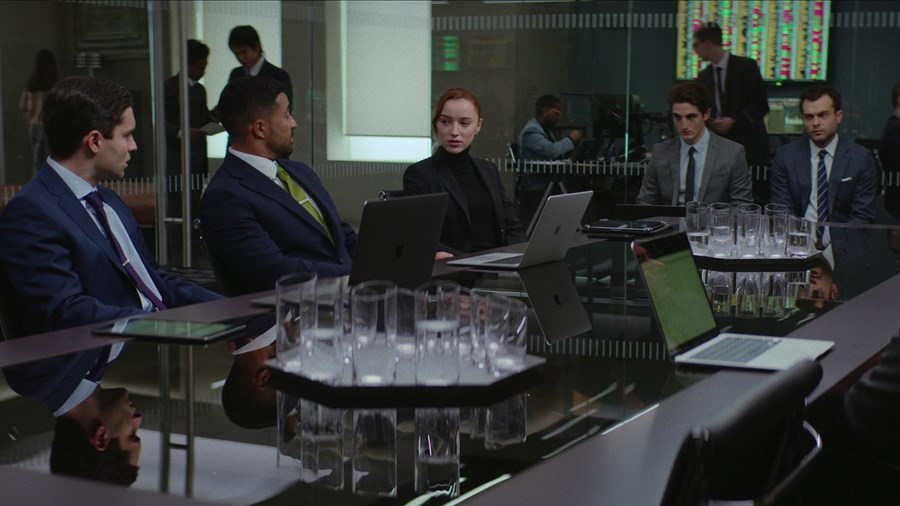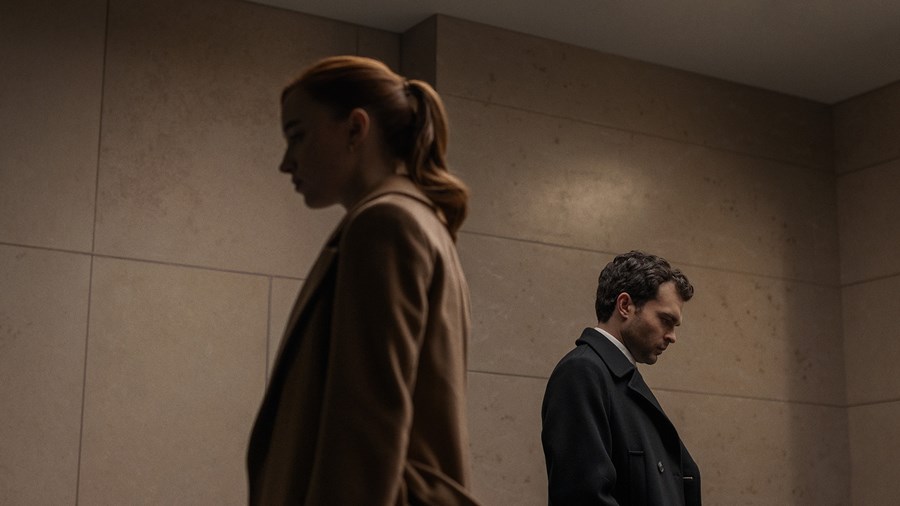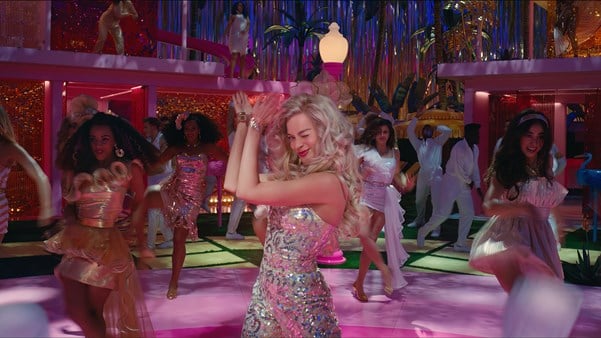There’s gender trouble in Upper Manhattan in Chloe Domont’s skin-prickling erotic thriller, writes Yasmin Omar.

There’s a reason we call them ‘finance bros’. You know the guys: the Wall Street brokers whose fathers went to their Ivy League college, as did their fathers before them, and their fathers before them. The sharks in Giorgio Armani suits and Patek Philippe watches who flaunt their $100 bills in monogrammed, sterling-silver money clips. We call them finance bros because they’re a fraternity, a family who aggrandise their own – and belittle everyone else. These characters glide through the outwardly sleek, inwardly sleazy world of Fair Play, Chloe Domont’s suffocatingly tense feature debut that illustrates the sly, delicate game one woman plays to win her place in their boys’ club. What’s stopping high-achieving financial analyst Emily (Phoebe Dynevor, code-switcher extraordinaire) from rising the ranks at investment bank One Crest Capital? Institutional sexism, certainly, but its chief architect – hammering supportive nails into the patriarchal structures that thrust him into a six-figure, nepotism-acquired job – is not her boss, not her head of department. It’s her boyfriend.

Fair Play (2023)
Fair Play is a tale as old as time in that respect, Luke (Alden Ehrenreich, at once pathetic and threatening) just another purpling bruise of a man who grabs at his partner’s retreating heels to prevent her getting ahead of him. The film succeeds in presenting the toxicity of Emily and Luke’s relationship as a series of gradations, his insidious nastiness, initially subtle enough to be explained away, soon snowballs into full-blown abuse. The writing is pointed, cutting through Luke’s faux concern to expose his latent misogyny.

Fair Play (2023)
Before all of that, though, they are a happy couple. Deliriously so. We meet them slinking away from the dancefloor at a wedding to ravenously explore each other’s bodies in a public bathroom. Fair Play, as a modern erotic thriller (a genre all but dormant since the Nineties), has been celebrated for bringing sexy back to the movies, and indeed it does pay close attention to Emily and Luke’s carnal desires. Much like Passages, the love scenes in Domont’s film are never prurient; they are essential narrative tools to show the devolution of a relationship. Luke’s tight-lipped peck on the cheek and reluctant sigh when Emily tries to initiate sex following her promotion say more about his roiling jealousy than words ever could. There’s a brutish edge to their sexual encounters that seems innocent enough – how many times have we seen a man slam a woman’s back against a wall in a frenzy of lust on screen? – but may just be an omen of disaster to come. Domont paces Fair Play deliberately, slowly stacking up combustible elements, in the pressure-cooker environment that is corporate finance, until they set off an inevitable, shuddering explosion.

Fair Play (2023)
Fair Play is operating on many levels. It’s an incisive study of workplace power dynamics. It’s a critique of the testosterone palaces that uphold the banking industry. It’s an investigation into a corrosive, self-worth-burning romance. Chloe Domont’s accomplished calling card of a first film ensures we’ll all be watching when she unveils her second.
WATCH FAIR PLAY IN CINEMAS




